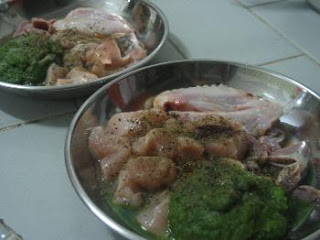What Is BARF?
 It actually sounds kind of gross, but BARF is an acronym for Biologically Appropriate Raw Food or Bones and Raw Food. Many health conscious veterinarians are huge advocates for this diet which can completely replace commercially prepared dog food. One of the first proponents of the BARF diet was Dr. Ian Billinghurst who still recommends it today. He believes that it is the ultimate way to get our pets in to optimum health. Many people believe that the BARF diet simulates what your dog would eat in his natural environment.
It actually sounds kind of gross, but BARF is an acronym for Biologically Appropriate Raw Food or Bones and Raw Food. Many health conscious veterinarians are huge advocates for this diet which can completely replace commercially prepared dog food. One of the first proponents of the BARF diet was Dr. Ian Billinghurst who still recommends it today. He believes that it is the ultimate way to get our pets in to optimum health. Many people believe that the BARF diet simulates what your dog would eat in his natural environment.Many people feel that there are a lot of health advantages to feeding a raw food diet. Many owners who have dogs with problems such as allergies, skin problems, weight problems, and anal gland problems have found that the bones and raw food diet has helped to significantly remedy these issues.
Some of the advantages to feeding a biologically appropriate raw food diet include no consumption of preservatives found in most commercially prepared kibble diets, it usually tastes better to your dog than regular dog food, and in general, muscle mass and body condition improve on a raw food diet. One also often finds that dogs produce fewer stools, eat more slowly, and have fewer health problems. Many advocates of the raw food diet also claim that it is less expensive than commercially manufactured dog food. One of the biggest disadvantages to this diet is that it takes longer to prepare.
If you decide that you would like to try the BARF diet with your dog, you must first do the research. There are many websites and books available to guide you through the process. Talk to your veterinarian, though many veterinarians are unfamiliar with the BARF diet. Find people in your area that feed the raw food diet to their animals. Make sure it is right for you and your dog before you try it.
The next step is to transition your dog from his commercial dog food to his new bones and raw food diet. You may want to do this gradually as oftentimes dogs develop digestive problems when switching to new diets. Some advocates of the BARF diet recommend switching your dog to the new diet cold turkey, however.
When feeding a raw food diet, you will generally want to feed your dog twice per day. The first meal of the day will usually consist of raw meat and bones like turkey or chicken legs, thighs, wings, or necks, pork riblets, lamb chops, and the like. The second meal will consist of a mush made with raw meat, fresh vegetables, and Offal (the organs parts of the meat you are feeding).
Usually you will want to supplement this with cottage cheese, eggs with the shells, yogurt, fruit, fish, and recreational bones (which are the harder to chew kinds of bones). This can vary, so do your homework. You will want to avoid grains. Advocates of the biologically appropriate raw food diet agree that dogs do not have the proper digestive systems to deal with whole grains and that most food allergies are grain related.
Most advocates of the raw food diet do not recommend supplements. If you aren't sure what to do, speak with your veterinarian.
Many people are hesitant to feed their dog a raw diet because they are concerned about their dogs choking on bones. While these incidents occur, proponents of raw food diets say they are rare, and that generally, dogs choke on cooked bones, not raw ones.
There are commercially prepared raw food diets on the market. While this is always an option for you if you choose to feed raw food, many advocates of the BARF diet recommend against it. They argue that these foods have different regulations that human grade foods, oftentimes contain unnecessary supplements, are ground foods (and the whole basis of the BARF diet is raw, meaty bones), and are much more expensive than visiting your local butcher.
If you decide that the bones and raw food diet is something that you'd like to try, first talk to your veterinarian about your decision. Then, do as much research into the diet as possible. Talk to others who feed the diet. You may find that by feeding the BARF diet you are improving the health of your dog.
Article:www.i-love-dogs.com/

ไม่มีความคิดเห็น:
แสดงความคิดเห็น